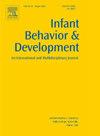婴儿对社会等级的推理:来自过去25年的关键见解和未来25年的研究议程
IF 2
3区 心理学
Q3 PSYCHOLOGY, DEVELOPMENTAL
引用次数: 0
摘要
在过去的25年里,关于婴儿认知和行为的最重要的发现之一是发现婴儿似乎能够感知和推理社会等级和社会地位。然而,还有许多重要而有趣的问题有待回答。在这里,我们强调三个领域的主要问题:概念、发展和应用。概念性问题涉及婴儿社会地位表征的本质。例如,婴儿认为个体或环境的哪些特征与地位相关,婴儿形成的后续表征有多抽象?第二组问题涉及基于地位的认知的发展。地位等级的抽象表征出现的时间有多早?它们在发展过程中、在不同的情境或文化背景中是稳定的还是可变的?最后一组问题是应用和解决孩子如何以及何时将层次结构映射到现实世界的群体,以及一旦他们这样做的后果。例如,儿童在整个发展过程中对自己和他人表达的信念与早期对地位的概念和表征有什么关系?总之,我们希望我们对过去25年丰富发现的回顾,以及我们解决剩余问题的框架,可以作为未来25年理论和实践丰富问题研究的跳板,这些问题是关于婴儿如何,何时以及为什么发展他们对社会等级和社会地位进行推理的复杂能力。本文章由计算机程序翻译,如有差异,请以英文原文为准。
Infants' reasoning about social hierarchies: Key insights from the past 25 years and a research agenda for the next 25 years
One of the most consequential discoveries about infant cognition and behavior in the past 25 years is the finding that infants appear able to perceive and reason about social hierarchies and social status. Yet, there are many important and fascinating questions yet to be answered. Here, we highlight major questions across three domains: conceptual, developmental, and applied. The conceptual questions concern the nature of infants’ representations of social status. For example, what features of an individual or context do infants perceive as status-relevant, and how abstract are the ensuing representations that infants form? The second set of questions address the development of status-based cognition. How early do abstract representations of status hierarchies emerge and are they stable or variable across development and across different situational or cultural contexts? The final set of questions are applied and address how and when children map hierarchies onto real-world groups, and the consequences once they do so. For example, how do early conceptions and representations of status relate to the beliefs that children express about themselves and about others across development? Together, we hope that our review of the rich findings from the past 25 years, and our framework for addressing the remaining questions, may serve as a springboard for the next 25 years of research into the theoretically and practically rich question of how, when, and why infants develop their sophisticated capacities to reason about social hierarchies and social status.
求助全文
通过发布文献求助,成功后即可免费获取论文全文。
去求助
来源期刊

Infant Behavior & Development
PSYCHOLOGY, DEVELOPMENTAL-
CiteScore
4.10
自引率
4.80%
发文量
94
期刊介绍:
Infant Behavior & Development publishes empirical (fundamental and clinical), theoretical, methodological and review papers. Brief reports dealing with behavioral development during infancy (up to 3 years) will also be considered. Papers of an inter- and multidisciplinary nature, for example neuroscience, non-linear dynamics and modelling approaches, are particularly encouraged. Areas covered by the journal include cognitive development, emotional development, perception, perception-action coupling, motor development and socialisation.
 求助内容:
求助内容: 应助结果提醒方式:
应助结果提醒方式:


